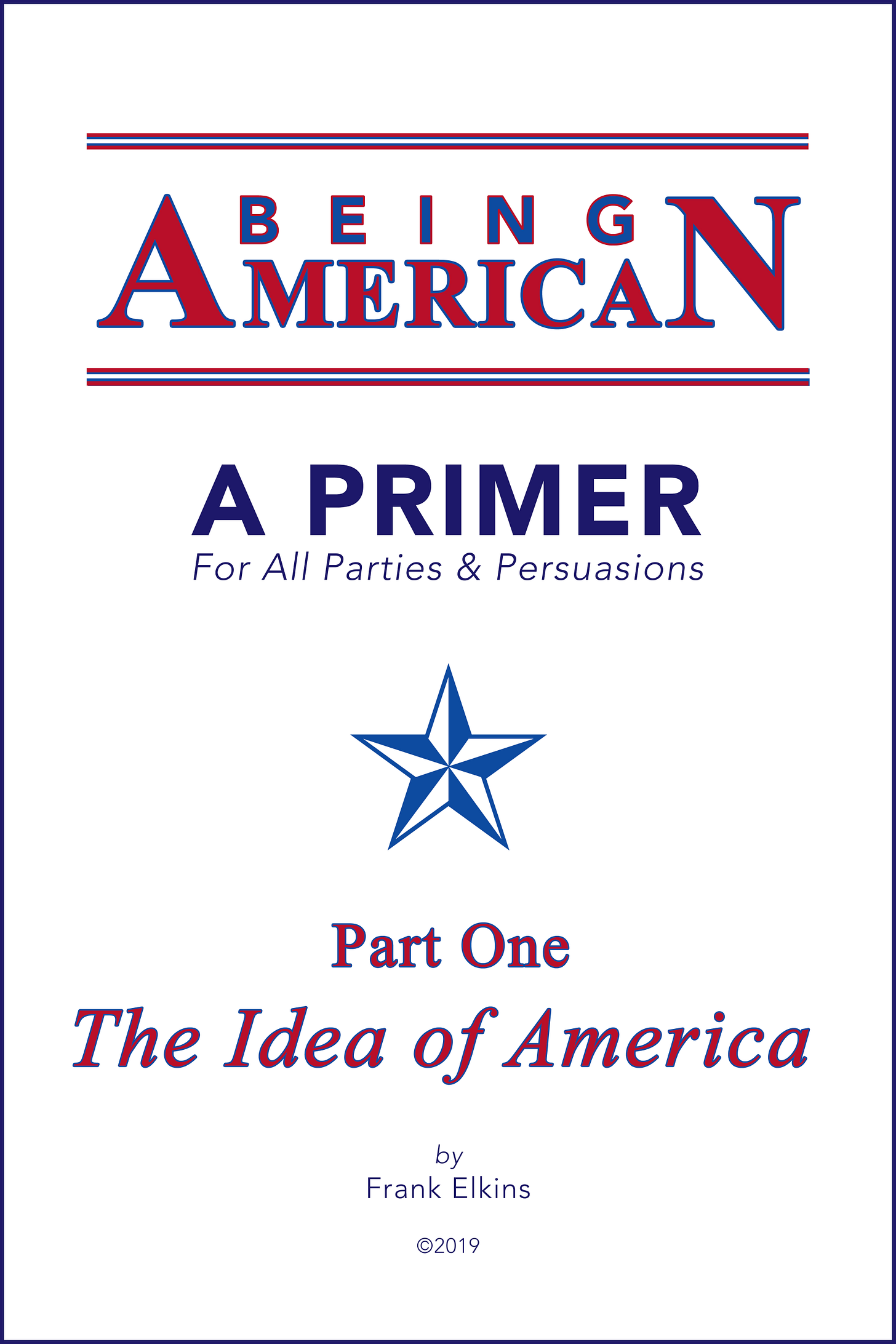How Things Work: A Brief History of Reality
Book I – Dualism ( A Cartesian America - Part 2)
New Substack Edition of Book One Now Available – FREE with Upgrade to “Reality by a Thread” Coming This June!
Tuesday, May 17, 2022
“Peace can only last where human rights are respected, where people are fed, where individuals and nations are free.” – Dalai Lama
CONSIDERATION #31 – “A CARTESIAN AMERICA” Part-2
PREFACE
Welcome Everybody!
As a historian, I cannot recall a “perfect” time or “perfect” place having ever been known to exist. Although the arch of history may move toward perfection, there seems to be no specific point along the way at which it has actually been achieved. Perhaps perfection can never be achieved in the physical world. However, in 1776 the first attempt at moving closer to it occurred. Since then, much has changed; mostly for the good. Although not perfect, it is virtually impossible to look back over the past 200 years and not recognize the improvement; things are much better for more people today than they were in 1776. However, as always, our attention should be mainly focused on improving the future by learning from our past as opposed to reimagining or reconstructing it.
CONSIDERATION #31 – A Cartesian America Part-2
You can fool some people sometimes,
But you can't fool all the people all the time.
So now we see the light –
We gonna stand up for our rights!– Bob Marley
Any abstraction, or eternal truth, resides in a state of perfection within the mind. However, once implanted into the physical world it can no longer maintain its abstract perfection. That is why eternal truths and ideas such as “individual liberty,” “individual equality,” and “individual autonomy” seldom become implemented, or even attempted. Self-evident and eternal truths are often in conflict with human free will and tradition; without the commitment to pure reason, sin and human weakness can, and often do, prevail in the physical world.
“America was the first society to establish itself on these eternal and self-evident truths; manifesting their possibility into the world of existence for the first time.”
America’s endeavor at manifesting these abstractions was not perfect. The most blatant example of this imperfection being slavery, which is inherently incongruent with liberty. However, America was the first society to establish itself on these eternal and self-evident truths; manifesting their possibility into the world of existence for the first time. This imperfect miracle would completely transform our reality.
With the birth of the United States of America, a process of increasing individual liberty, recognizing human equality, and embracing progress through science and technology had begun that would continue to increase and expand not only in America, but throughout the entire Western world. Much of this was driven by America’s commitment to patent and copyright laws that allowed innovators to “own” their ideas, resulting in an explosion of creative activity. In 1776, the only forms of transportation at the time involved walking or horses, people kept warm by the fire, and entertainment consisted of reading or sewing by the light of a candle made from whale fat.
“We have electricity, and everything that it brings, which if you look around is virtually everything that we have and use.”
Today we have planes, trains, and automobiles that continually move people from place to place all around the world. We even have rockets that allow us to leave the planet and come back. We have electricity, and everything that it brings, which if you look around is virtually everything that we have and use. We have medical advancements that have expanded our lifespan and made those extra years more enjoyable. We have communication technology never even thought possible in the past that allows us to talk, text, access unlimited entertainment, and download anything, anywhere, from anyone in the world.
More importantly, most of these modern miracles of power are not reserved for only the elite and noble of our society; they are available to essentially everyone. Who do you know that doesn’t own a cell phone? Our modern existence represents a reality that could never have been dreamt of by Descartes.
POSTSCRIPT
This concludes our consideration of the Age of Reason and America’s influence on the modern world. From here we begin to consider the actual results of this influence in our current reality. There is perhaps no greater example of how Western Dualism has affected our current modern reality than the creation of digital technology.
Next Week we begin the final chapter of Book One: Digital Dualism.
Learn More About the Idea of America: “Being American: A Primer for All Parties and Persuasions!” Available Exclusively from BooksNotOnAmazon.com





